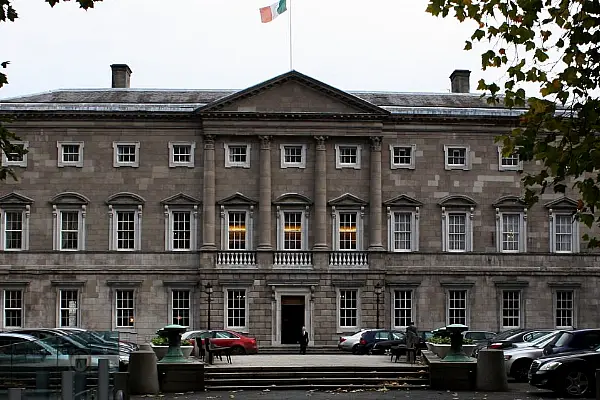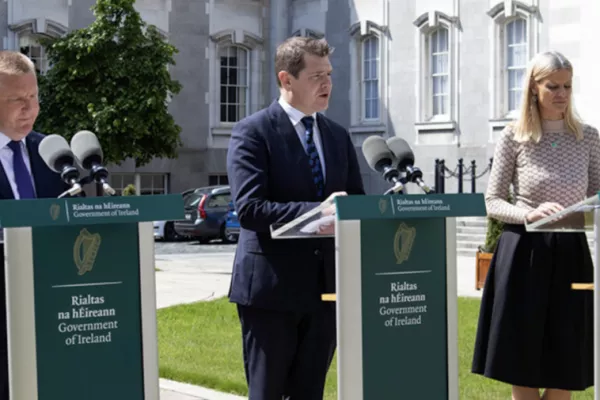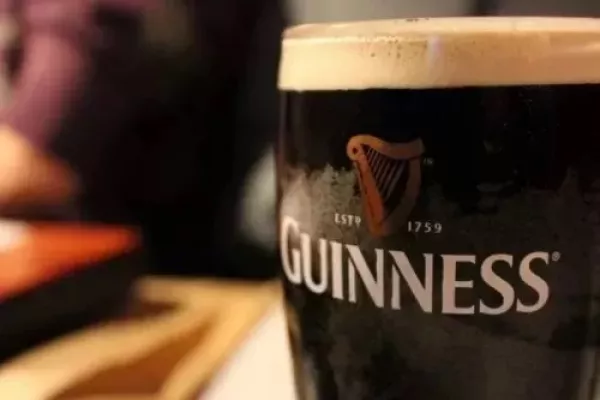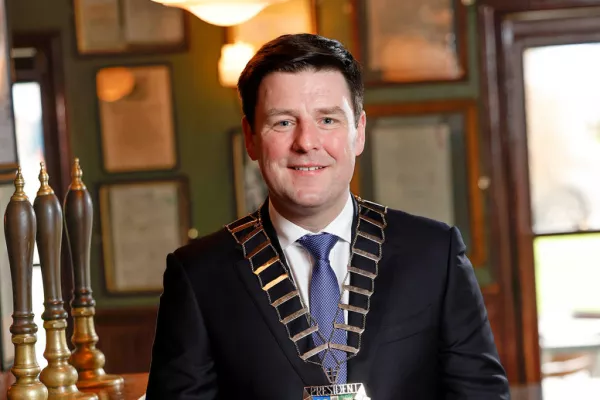What’s next for the publicans of rural Ireland? Hospitality Ireland talks to Padraig Cribben, CEO of the VFI, about the challenges just past, and the challenges ahead.
This article was originally published in the Spring 2022 issue of Hospitality Ireland Magazine, in March of 2022.
Firstly, do you think we have clarity now? Do you think that we are in a position that we can trust and plan, and hope that there won’t be any kind of new and unexpected Covid developments?
I think we have to plan on that basis – we can never be sure that there won’t be a new variant that will throw us all off kilter – but we would like to think that’s a remote possibility at this point in time. We’re just going to have to work on the basis that this is it – we’re back to where we want to be. In terms of the trading opportunities, it doesn’t necessarily mean that the business is back to where we want to be – there are many challenges out there – but, yes, in the context of restrictions, we’d like to think that we have crossed that Rubicon at this point.
In terms of where pubs are now, with reopening, what kind of position are they in, by and large?
There’s a couple of things to say to that. In the immediate reopening, there is a certain amount of pent-up demand, whether that be from younger clientele that have been basically restricted for the past two years, or whether it be for family occasions where people have been unable to meet. So, there’s an element of pent-up demand there that will be unleashed in the next couple of weeks – we hope – and that certainly will support those reopening. I suppose, if we look at it on a kind of a more macro level, looking into the future, where are they at the moment? I suppose, in essence, there have been two years without trading. There is a lot of overhanging debt. There is a lot of apprehension.
There are a significant number of immediate challenges, and a significant number of medium-term challenges. If I look at it in the immediate term, there is a big issue around staffing. There are a number of factors feeding into that. Obviously, over the last two years, the sector would have been seen to be not reliable – it was stop-start – and people who had commitments such as mortgages and so on, they just couldn’t hang about waiting for us to get the green light. So, many of them have moved into retail, they’ve moved into logistics, they’ve moved into transport.
We’ve lost valued staff. There are many who have gone back to their country of origin, whether it be in Eastern Europe or whatever. We lost a lot of international workers on that basis. I think one of the things that people sometimes don’t factor in is that, in the business that we’re in, the first thing to say is that there is no real choice in the hours. They are unsocial. That, unfortunately, is a fact of life, and people have looked at this over the last two years – they’ve looked at that work-life balance – and they have adjusted and maybe they have said, “I’m going to do something different that will give me more time with family,” so we lost that for all of those reasons.
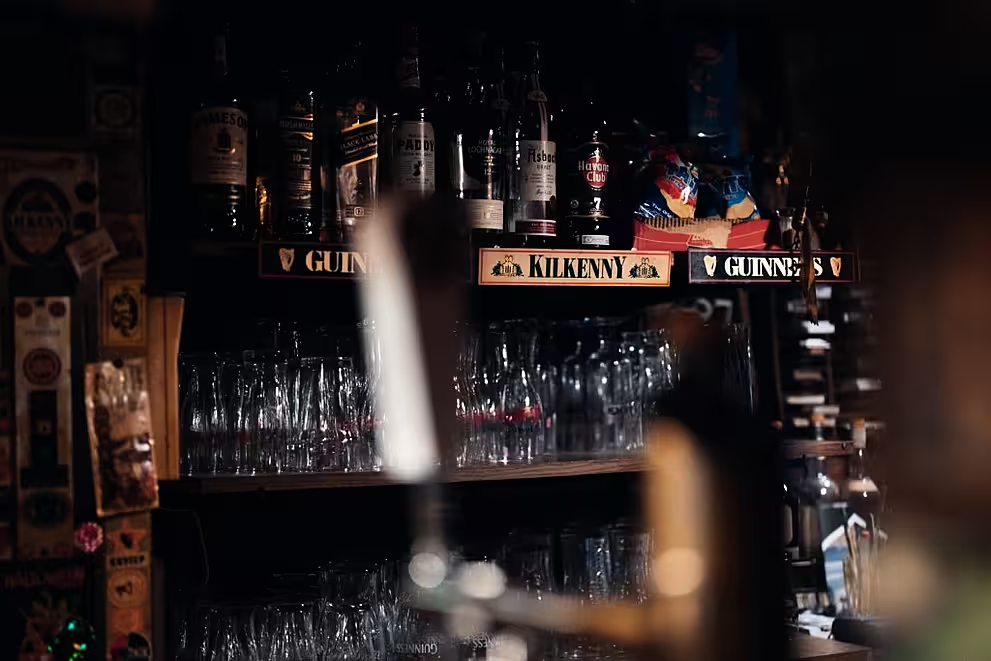
So, some of the staffing challenges are fixable and some aren’t? Some are not changeable?
That’s correct. There are a number of non-changeable issues, and there’s an added factor that sometimes is not dialled in: a lot of the people – the international workers who’ve gone back home – are not necessarily coming back. The housing crisis here and affordable housing, or the lack thereof, has made it impossible for them to survive and save. A lot of them would be like the Irish who went abroad in previous generations, who wanted to put enough money together to buy a site or put a deposit on a house back home. These workers can’t do that in Ireland any more because of the prohibitive cost of housing and accommodation.
So that makes Ireland an unappealing destination for that kind of worker, who we have relied on over the last few years, particularly in hospitality. Could the government be doing something that it is not currently doing?
We’re certainly currently talking to people like Fáilte Ireland with a view to a number of initiatives – for example, looking at where there may be around Europe, let’s say, a surplus of staff, looking to try to attract those people here. Obviously, that doesn’t solve the housing and the accommodation issue, but that’s one that will have to be addressed. That’s probably one of the early things that can be done.
We certainly need to speed up the process of dealing with work permits. It’s currently running at about 20 weeks – the UK is running at about two weeks – so that’s a major factor. By the time the actual application is processed, the individual has perhaps disappeared somewhere else – it’s a big factor in the equation – so there are certainly lots of things that can be done.
Those are things that you would think would be relatively easy to sort out?
Yes. The staffing is a major issue. Then there is the question of what happens once the pent-up demand is released. It’s hard to know what the public mood has become around going out, particularly with the older generation. Have they changed their habits? Will their normal socialising habits come back? It’ll take time to get our heads around that.
Then, of course, there’s the massive issue of inflation. In terms of inputs, I mean, the stories that I’m hearing about energy are horrendous – the inflation in food costs, the inexorable rise in insurance costs, which are not being addressed. There are all of those payments, so we’re at a stage where there is significant inflation, and indeed, there are labour costs as well because, obviously, if you’re pulling out of a reduced pool, then there will be the law of supply and demand. If you look at our particular sector, where labour costs are such a big percentage of turnover, any increase in labour costs has a much more striking effect in this business than it has in other businesses, where your labour costs will be a fraction of what they are in the hospitality sector.

What is your gut feeling around the way our relationship with pubs and with going out in general may have changed through Covid?
Do you think the habits of being at home will die hard? No. I’d be confident. We tend to be good social animals, if that’s an acceptable term. I think we will want to socialise. We will want to be with other people. We will want to go out and be part of groups again. It may take a little bit longer for those who feel vulnerable, but no, I would be confident that once we get over the latent fears that are still there, we will see a return to more normal activity.
How do you think the government handled the whole pandemic in general, and specifically in the way it behaved around hospitality?
Well, I suppose the first thing to say is that – whether it was for governments, whether it was for scientists, or whether it was for business people – there was no textbook for what happened in the last two years. It’s very easy, with the absolute benefit of hindsight, to say, “We could have done this better. We could have done that better.” There is no doubt that, for all of us looking back, we’d say, “God, if I had my time back, I might have done that differently,” but I think, in the round, I would have to say that the government has done pretty well. I mean, in simple terms, if the supports that have been put in place in the sector weren’t there, there would be no sector to come back to.
I think it’s very easy to be critical, but we also have to be objective. At the end of the day, business people – they don’t want supports. They want to trade. They want to do what they do best. In the light of everything that happened, we could argue that this closure shouldn’t have happened or that restriction shouldn’t have been in place – and you will get people on the opposite side of that discussion or debate who will say it didn’t go far enough.
I don’t believe that the public health specialists got everything right. I think – definitely when they look back on their performance over the last two years – they’ll say, “We might have done that differently.” I think that there are certainly a couple of very standout items that they didn’t get right, but – as I said – there was no textbook. I also think that the assessment of how we handled this should be let rest for a while because I don’t think that we should be into scapegoating at this point.
What about other, non-Covid things? We had problems before Covid, although that seems hard to imagine now. Are they still there? Is Brexit still a factor that makes life difficult, for example?
The biggest factor, of course – and it is Covid related – is the whole tourism scenario. On that, I’m somewhat reassured. I was at a meeting yesterday, and Tourism Ireland were saying that the air connectivity level this year is going to be back to about 88% of 2019, so of course that’s a two-way street because it’s taking people out as well as in, but I think the other thing that we as a nation have done over the last two years is that we got to rediscover our own country. I think there’s a pent-up demand at the moment for people to get out and have a bit of fun – there’s also a pent-up demand for people to get away and get a bit of heat in the bones – but I still think there’s also a good spillover benefit from what happened in the last two years, where people will want to see more and more of their own country. I think that certainly has the capacity to be a positive, but, you know, we’ve a myriad of ongoing challenges, particularly in areas like insurance, in areas like energy costs. The whole greening of the economy will certainly be a challenge – not just for our sector, but for all businesses in terms of the costs that will be involved. So, while we’re coming out of the woods in the context of Covid, there are a few forests ahead as well. Inflation debt overhang – all of that kind of stuff – will have to be addressed in the weeks and months ahead.

Sometimes it feels as if hospitality is an industry that is never not facing a crisis of one sort or another, but is that just true of life?
I think I’d use the words ‘serious challenges’ rather than crisis. You know, every business at various times has their own challenges, irrespective of what those businesses are. The pub sector has had, over the last decade or so, serious challenges from lifestyle changes – and a lot of regulatory changes as well – but if you take, for example, the quality of the food offering today versus where it was ten years ago? If you take the quality of the entertainment where it is today versus ten years ago? If you take the quality of the facilities, where they are today versus ten years ago in pubs – it just proves that publicans are resilient. They rise to meet the market demand. I have no doubt that, over the next ten years, they’ll do exactly the same thing.
Would you say – among your members, generally – there’s a good feeling of energy at the moment?
There’s a feeling of relief that we can get back to doing what we do. There’s a certain feeling of apprehension as to where the public are going to be at and what the expectation is going to be, and I suppose, for some, there’s a feeling of tiredness – trying to get back to normal working patterns as well – but I think the overall emotion is one of relief, and now let’s get on with it, and I suppose that will lead to a certain amount of enthusiasm for what’s ahead.
Read More: Hospitality Ireland Spring 2022: Read The Latest Issue Online!

